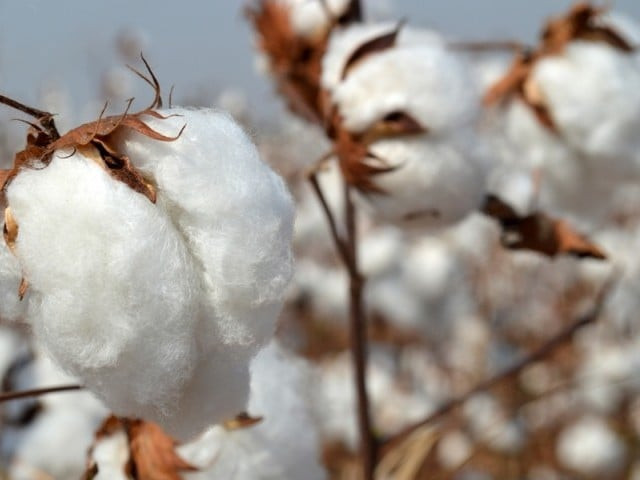On a thread: Cotton growers irked by falling price
Want govt to set minimum support price to save losses

Want govt to set minimum support price to save losses. PHOTO: FILE
New stocks have arrived in the market from the beginning of August and as expected prices are again on a declining trajectory compared to last year.
In 2014, the price of cotton seed (Phutti) was in the range of Rs2,500 to Rs2,800 per maund (40 kilogram), depending on the quality. This year the new crop is being sold in a price range of Rs2,000 to Rs2,300 per maund, which is at least 20% less than last year.
The farming community has been demanding the government to set a minimum support price of cotton aimed at saving them from potential losses. However, the Ministry of National Food Security and Research has not taken any decision on the issue, said officials.
The cotton traders said that the international market was also slowing down due to unconsumed stocks of the previous year. This is also adversely affecting the price of new crop, they added.
The farmers said at the price range of Rs2,000 to Rs2,300 they were not even recovering the cost of production. The price of lint is Rs4,500 to Rs5,000 against the previous year price of Rs6,500 per maund.
Rao Babar Ali, a cotton grower, said that farmers are not getting a fair return. “The situation is creating unrest among cotton growers.”
Impact on the textile industry
The officials of the spinning industry said that the sector is also suffering because of heavy taxation. They added that many industries remained closed during the last month due to a strike call against the 0.3% withholding tax on banking transactions valuing over Rs50,000 a day.
Ahmad Ali, a cotton trader, said China, being the main buyer of yarn, is witnessing an economic slowdown and that is adversely impacting Pakistan as well.
The production of cotton crop is expected at 15 million bales for the current 2015-16 season. However, the number is likely to come down due to flood damage in Punjab and Sindh.
“It is true that the farmers have been hit hard by the current situation,” Rehan Mujtaba, an agriculture expert, told The Express Tribune. “Farmers should change their mechanism of sowing and harvesting crops. The traditional methods of farming are also causing losses.”
Punjab Agriculture Department Executive District Officer Chaudry Hameed said that his department was imparting training to farmers.
He added that teams of Punjab Agriculture Department work with farmers in their fields, advising them how to use pesticide at the right time to save the crop.
Published in The Express Tribune, August 22nd, 2015.
Like Business on Facebook, follow @TribuneBiz on Twitter to stay informed and join in the conversation.



















COMMENTS
Comments are moderated and generally will be posted if they are on-topic and not abusive.
For more information, please see our Comments FAQ